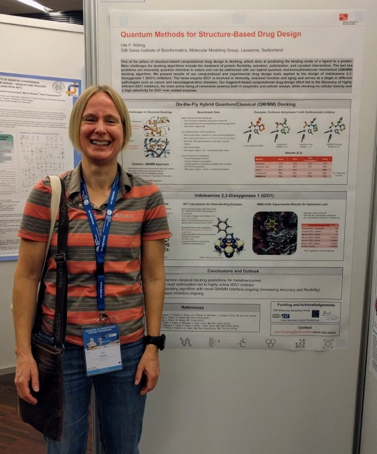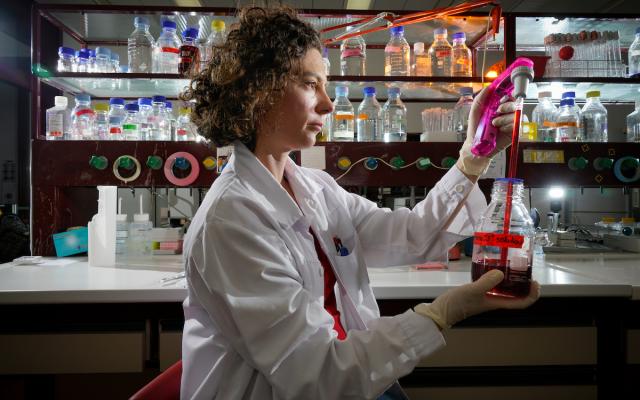Two of our scientists received an SIB Travel Fellowship to attend and present their research at the Advances in Computational Biology Conference (November 2019, Barcelona, Spain), an initiative of the Bioinfo4Women program from the Barcelona Supercomputing Center. The conference was set up to foster collaboration among women scientists: while open to everyone, all organizers, scientific committee members, speakers, poster presenters and panelists were women. Ute Roehrig, Senior Scientist in Vincent Zoete and Olivier Michielin’s Group at SIB in Lausanne, and Annika Lisa Gable, PhD Student in Christian von Mering’s lab at the University of Zurich, gave us their impressions.
And at SIB?
SIB organizes, on a biennial basis, two scientific conferences: the [BC]2 Basel Computational Biology Conference, the most recent of which attracted participants from 30 countries, and SIB Days, dedicated to its members. As an institution committed to diversity, equality and inclusion it strives to ensure a balanced representation among speakers and organizers of such events. In 2019, two of the six [BC]2 keynote speakers were given by leading women researchers, and each of the five thematic sessions – three of which were co-chaired by a female SIB Group Leader – included a female speaker. For the 2020 SIB Days, each of the eight thematic sessions will be co-chaired by male and female scientists, and the two keynote speakers of the conference will be women.
What were the most notable differences with other scientific conferences you have attended?
Ute Roehrig: Limiting the choice of speakers to women clearly did not affect the scientific quality of the presentations: instead it provided a more relaxed and friendlier atmosphere. This encouraged some speakers to mention personal concerns, and most of the audience to feel comfortable enough to ask questions after the talks. The goal of the conference was not to complain about the current underrepresentation of women in leading positions, but to bring together successfully established women and young scientists, to empower the latter.
Annika Lisa Gable: I found it inspiring to hear talks and a panel discussion by women in senior positions in the Computational Biology field since usually the people in senior positions giving talks at a conference are men. It provided me with role models which are sometimes lacking
What were the activities specifically dedicated to promoting women and diversity in science?
UR: There was a welcoming speech by Angels Chacon, the first female minister for business and knowledge in Catalonia, and a play about the resilience of Rosalind Franklin – in spite of the treatment received from her male colleagues. A lunch meeting with women leaders from academia, business, and politics was also organized. The conference dinner provided another very nice occasion to meet and exchange, but interestingly the subject of women in science was not discussed at my table, nor did the subject come up during the poster session or other discussions I had. Of course, this is just my personal experience.
ALG: During the panel discussion, fair and equal collection of training data for machine learning was highlighted, since in some cases women, and more frequently ethnic minorities and developing countries are very underrepresented in the biomedical data collected, leading to biases. The conference dinner provided a great opportunity to get to know my neighbors at the table a little better in an informal setting. This was very interesting, since I talked to an entrepreneur and a PhD student from Iran.

Before/after: did attending this event change your perception of the topic?
UR: The conference provided an interesting reminder that things could be different and better if there was equal representation of men and women in leading scientific positions.
ALG: I became more aware of how many women work in Computational Biology, especially those coming from mathematics or computer science backgrounds. However, I am not sure that an all-women conference is the best way to promote women in the field. On the one hand, the visibility of a contribution to the conference is less if only the female half of potential attendees is there, and on the other hand, I find it hard to justify the idea that men are not allowed to contribute solely based on their gender.
In my view, the challenge for women in academia is not so much that they will not get invited to speak at conferences, but rather the lack of stable and well-paid positions which women may be looking for, especially when they are planning to have a family. A 50-50 representation of women and men at conferences is very important, but also difficult to obtain as long as there are so few female PIs due to the above-mentioned challenges.


